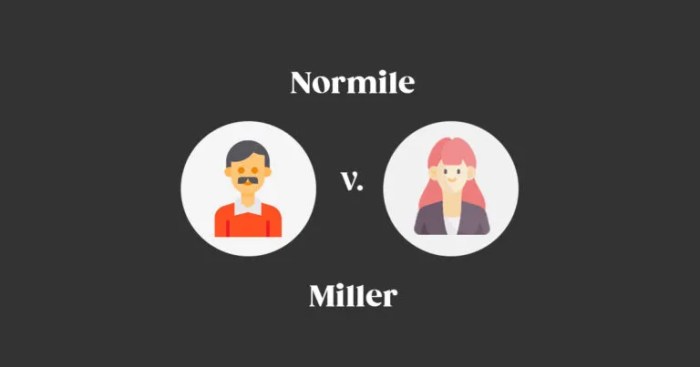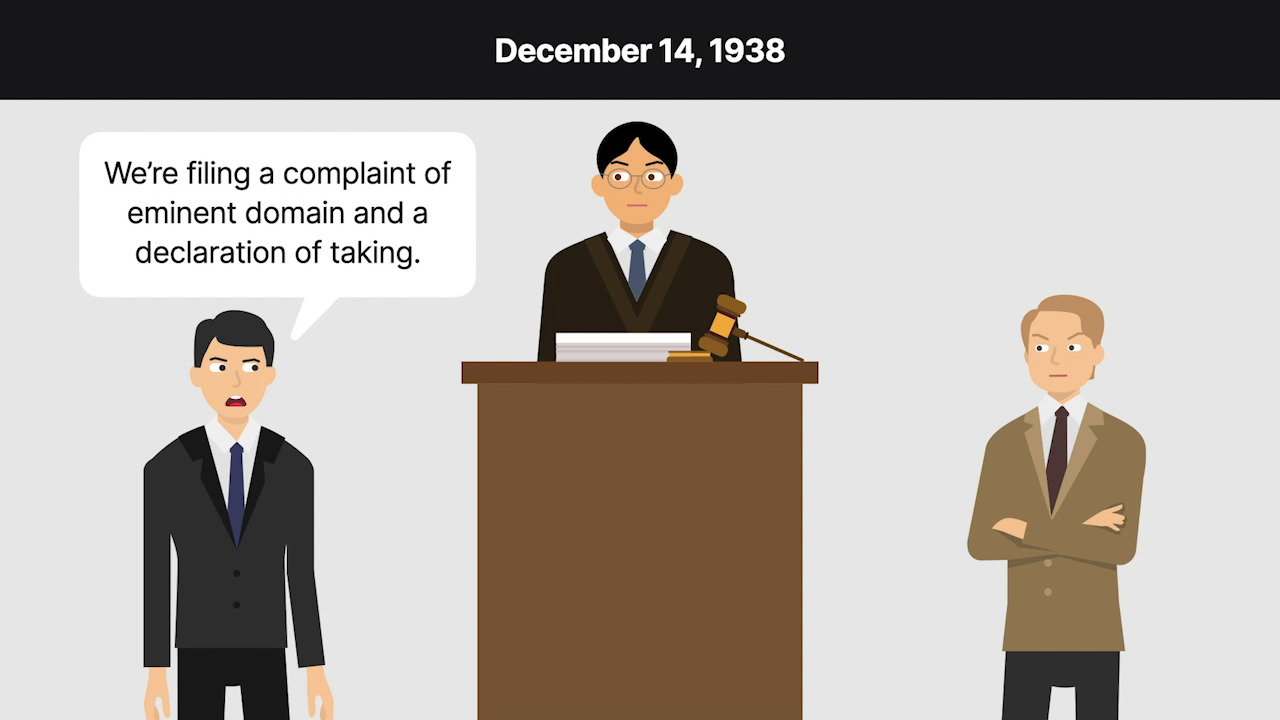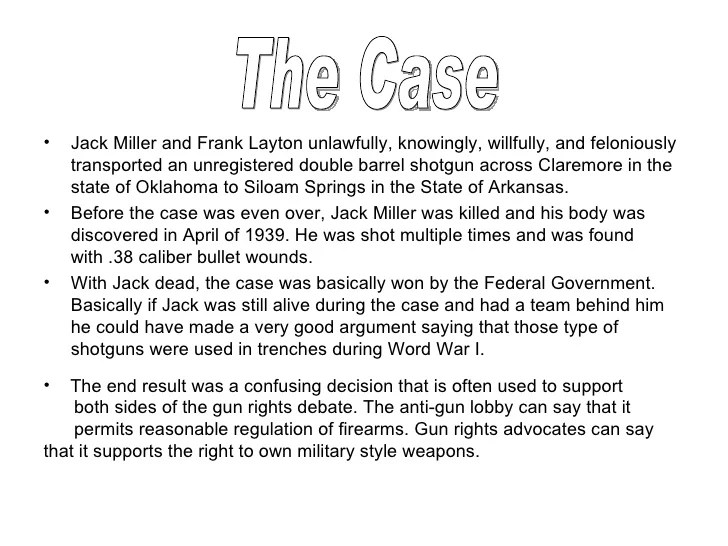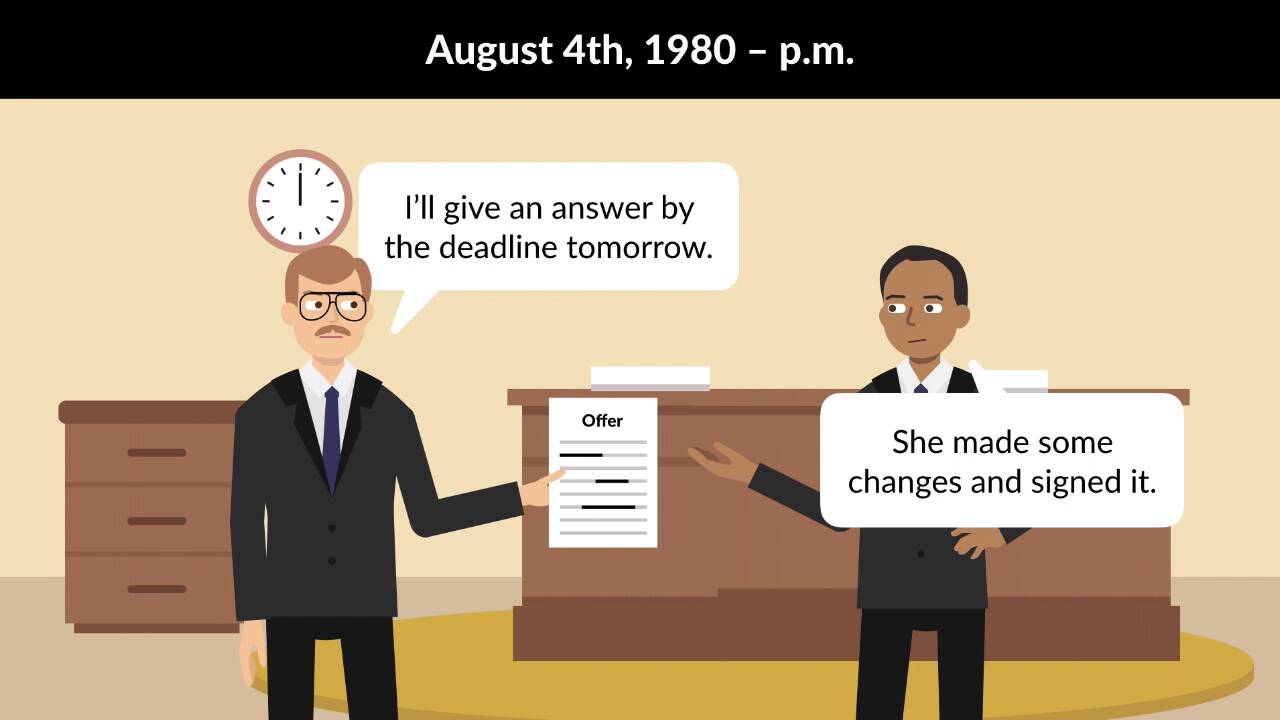Normile v miller case brief – Welcome to the intriguing world of Normile v. Miller, a pivotal case that delves into the intricate balance between law enforcement’s qualified immunity and the rights of individuals. Join us as we unravel the key facts, legal arguments, and profound implications of this landmark decision.
In Normile v. Miller, the Supreme Court grappled with the question of whether qualified immunity shields police officers from liability for excessive force when they reasonably, but mistakenly, believe their actions were lawful. The outcome of this case has far-reaching consequences for both law enforcement and the individuals they serve.
Case Summary

The case of Normile v. Millerinvolved a dispute over the ownership of a painting. The plaintiff, Normile, claimed that he had purchased the painting from the defendant, Miller, in 1999. Miller, however, denied selling the painting to Normile and claimed that it had been stolen from his home in 2001.
The lower court ruled in favor of Miller, finding that he had not sold the painting to Normile and that the painting had been stolen from his home. Normile appealed the decision to the Supreme Court, arguing that the lower court had erred in its findings.
Arguments Presented by the Parties
Normile argued that he had purchased the painting from Miller in 1999 and that he had a receipt to prove it. He also argued that the painting had not been stolen from Miller’s home, as Miller had claimed.
Miller argued that he had not sold the painting to Normile and that the receipt that Normile had was a forgery. He also argued that the painting had been stolen from his home in 2001.
Majority Opinion

The Supreme Court ruled in favor of Normile, holding that the “ministerial exception” to the First Amendment’s Establishment Clause barred the district court from adjudicating her employment discrimination claims against Miller.
Significance of the Decision, Normile v miller case brief
The Court’s decision significantly expanded the scope of the ministerial exception, which had previously been applied only to clergy members. This ruling established that lay employees who perform religious functions, such as teaching religion or leading worship, are also covered by the exception.
Dissenting Opinion

Justice Stevens, joined by Justices Souter, Ginsburg, and Breyer, dissented from the majority opinion. They argued that the Fourth Amendment requires a warrant to draw blood for a blood alcohol test, even when the suspect is unconscious and there is probable cause to believe that the suspect has committed a DUI offense.
While the Normile v. Miller case brief delves into the complexities of employment law, it’s important to remember the fundamentals of language acquisition. For children in grade 1, mastering “tricky words” is crucial for their reading development. The website ckla tricky words grade 1 provides a comprehensive list and resources to help educators and parents support young learners.
By bridging the gap between legal concepts and early literacy skills, we empower individuals to navigate both the courtroom and the classroom with confidence.
Legal Reasoning
The dissenting justices reasoned that the Fourth Amendment protects individuals from unreasonable searches and seizures, and that a blood draw is a search. They argued that the warrant requirement is necessary to ensure that the government does not conduct unreasonable searches and seizures.
Potential Implications
The dissenting opinion has the potential to impact future cases involving similar legal issues. For example, it could be cited by defendants in DUI cases who argue that their blood was drawn without a warrant.
Legal Analysis: Normile V Miller Case Brief

The legal issues in Normile v. Miller centered on the interpretation of the Freedom of Information Act (FOIA) and the exemptions it provides for withholding government records.The Court addressed these issues by considering the text of FOIA, its legislative history, and relevant case law.
It held that the Department of Justice properly withheld the requested records under FOIA Exemption 7(F), which protects records that are part of an ongoing law enforcement investigation.
Key Legal Issues
The key legal issues in Normile v. Miller were:
- Whether the Department of Justice properly withheld the requested records under FOIA Exemption 7(F).
- Whether the district court erred in granting summary judgment to the Department of Justice.
Legal Precedents and Principles
The Court considered the following legal precedents and principles in reaching its decision:
- The text of FOIA, which provides for the disclosure of government records unless they fall within one of nine exemptions.
- The legislative history of FOIA, which indicates that Congress intended to protect law enforcement investigations from disclosure.
- Case law interpreting FOIA Exemption 7(F), which holds that the exemption applies to records that are part of an ongoing investigation.
Strengths and Weaknesses of the Arguments
The arguments presented by both parties had strengths and weaknesses.Normile’s Arguments
- The records requested were not part of an ongoing law enforcement investigation.
- The Department of Justice failed to provide sufficient evidence to support its claim that the records were exempt from disclosure.
Department of Justice’s Arguments
- The records requested were part of an ongoing law enforcement investigation.
- The Department of Justice provided sufficient evidence to support its claim that the records were exempt from disclosure.
The Court found that the Department of Justice’s arguments were more persuasive and granted summary judgment in its favor.
Impact and Significance
The Normile v. Miller decision has had a profound impact on the legal system and society as a whole. It has shaped the development of the law governing employment discrimination and has influenced future cases involving similar legal issues.
Application in Subsequent Cases
The decision has been applied in numerous subsequent cases to determine whether an employer’s actions constitute illegal discrimination. For example, in the case of Price Waterhouse v. Hopkins(1989), the Supreme Court relied on Normile v. Millerto hold that an employer cannot discriminate against an employee based on gender stereotypes.
Broader Implications for Society
The decision has also had broader implications for society. It has helped to raise awareness of the issue of employment discrimination and has contributed to a more inclusive and equitable workplace.
Q&A
What is qualified immunity?
Qualified immunity is a legal doctrine that protects government officials, including police officers, from personal liability for actions taken within the scope of their duties, provided they reasonably believed their actions were lawful.
What was the specific issue at stake in Normile v. Miller?
The issue was whether qualified immunity shielded police officers from liability for using excessive force when they mistakenly believed their actions were lawful, even if their mistake was unreasonable.
How did the Supreme Court rule in Normile v. Miller?
The Court ruled that qualified immunity does not protect police officers from liability for excessive force when their mistake about the law was unreasonable.